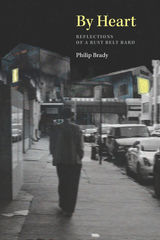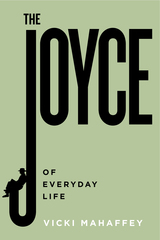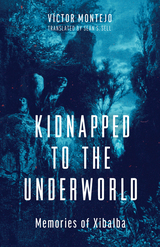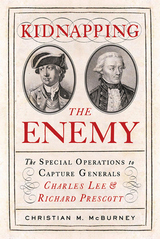2 books about Brady, Philip

By Heart
Reflections of a Rust Belt Bard
Philip Brady
University of Tennessee Press, 2008
With a perfect balance of playfulness, humor, and apology, Philip Brady calls himself a bard. But he explains that, before the title became shrouded in mystery, bards were simply teachers, unknown and poor, who gave literal voice to poems through recitations. Woven throughout these twenty essays is Brady's resistance to the academic expectations and settings of poetic instruction, enabling him to elicit the most authentic and surprising responses from a range of voices. He is motivated by the possibility of poetry expressed in the grittiest of places and takes readers from the rust belts of Ohio, to the far-flung pubs of Ireland, to Zairian classrooms with few books and fidgety lightbulbs. Most of all, he believes that, while bad poetry is a fact of life, good poetry should be studied and learned by heart.
Brady doesn't resort to dissecting poems here, though poems-his own and those of many of his masters, from Yeats to Tu Fu-do appear. Instead, the poetic language of his observations seems to fulfill a greater purpose: “Voiced, the poem is transfigured from a printed glyph to sensory language: ephemeral, but with a tensile strength derived from the collective memory that births it. Critics may feel differently, but what matters to a poem is not how many times it is reprinted, but how deeply it penetrates the heart.”
These essays are meditations grounded in the author's life as a poet, teacher, publisher, musician, traveler, and organizer. In one, readers encounter non-traditional students who attend class after work and whose lives are already shaped by burden. Brady recognizes the tension between reading poetry as an academic exercise and reading it for its power to endow all people with a broader sense of the self that is informed by both the dead and the living. He celebrates the challenges that his students bring to the classroom by forging headlong into discussions that other instructors would cringe at-as when a student declares that he doesn't like reading old poetry but instead likes greeting-card poems. Brady masterfully turns this potentially deflating moment into one that is both validating and deeply inspiring-for student and reader.
Brady doesn't resort to dissecting poems here, though poems-his own and those of many of his masters, from Yeats to Tu Fu-do appear. Instead, the poetic language of his observations seems to fulfill a greater purpose: “Voiced, the poem is transfigured from a printed glyph to sensory language: ephemeral, but with a tensile strength derived from the collective memory that births it. Critics may feel differently, but what matters to a poem is not how many times it is reprinted, but how deeply it penetrates the heart.”
These essays are meditations grounded in the author's life as a poet, teacher, publisher, musician, traveler, and organizer. In one, readers encounter non-traditional students who attend class after work and whose lives are already shaped by burden. Brady recognizes the tension between reading poetry as an academic exercise and reading it for its power to endow all people with a broader sense of the self that is informed by both the dead and the living. He celebrates the challenges that his students bring to the classroom by forging headlong into discussions that other instructors would cringe at-as when a student declares that he doesn't like reading old poetry but instead likes greeting-card poems. Brady masterfully turns this potentially deflating moment into one that is both validating and deeply inspiring-for student and reader.
[more]

Phantom Signs
The Muse in Universe City
Philip Brady
University of Tennessee Press, 2019
What are the paradoxes of the writing life, especially for a writer who represents the work of other writers? Philip Brady, poet at Youngstown State University and publisher at Etruscan Press, begins Phantom Signs pondering this question from his dual perspective as a professional writer and small-press publisher. This book emerges from the tension between these modes of being in the world: the writer’s dark; the editor’s light.
With humor, grace, and intelligence, this collection of personal essays comprises a reflective memoir, offering insights into the way that art affirms and resists identity. Rather than recounting events chronologically, Brady lets the “muse” meander through discourses on childhood poems, heart surgery, basketball, Homer, and po-biz, featuring a cast of characters that range from the Sea Nymph to The Three Stooges. Throughout, Brady plays on the creative tension between poetry’s dual means of apprehension: sound and text. Fixed yet ephemeral, poems make “phantom signs.” From this viewpoint, poetry is not merely a canon or even a literary genre, but a way to reshape mind and world—and what a world: bars, hospitals, swimming pools, bandstands, publishing offices, hoops courts, prisons, mythic love trysts, and descents into the underworld, as well as classrooms from four decades on three continents.
Brady’s experiences will ring true not only for those who would peer behind the curtain into the writers’ life but also for those who wrestle with the implications of their own aging. Readers who fear that poetry is bound by anthologies, cliques, and textbooks, will be heartened. Shimmering with lyrical prose, clever wordplay, and a lifetime’s immersion in literature, Brady’s reflections on the power of the muse are essential reading.
With humor, grace, and intelligence, this collection of personal essays comprises a reflective memoir, offering insights into the way that art affirms and resists identity. Rather than recounting events chronologically, Brady lets the “muse” meander through discourses on childhood poems, heart surgery, basketball, Homer, and po-biz, featuring a cast of characters that range from the Sea Nymph to The Three Stooges. Throughout, Brady plays on the creative tension between poetry’s dual means of apprehension: sound and text. Fixed yet ephemeral, poems make “phantom signs.” From this viewpoint, poetry is not merely a canon or even a literary genre, but a way to reshape mind and world—and what a world: bars, hospitals, swimming pools, bandstands, publishing offices, hoops courts, prisons, mythic love trysts, and descents into the underworld, as well as classrooms from four decades on three continents.
Brady’s experiences will ring true not only for those who would peer behind the curtain into the writers’ life but also for those who wrestle with the implications of their own aging. Readers who fear that poetry is bound by anthologies, cliques, and textbooks, will be heartened. Shimmering with lyrical prose, clever wordplay, and a lifetime’s immersion in literature, Brady’s reflections on the power of the muse are essential reading.
[more]
READERS
Browse our collection.
PUBLISHERS
See BiblioVault's publisher services.
STUDENT SERVICES
Files for college accessibility offices.
UChicago Accessibility Resources
home | accessibility | search | about | contact us
BiblioVault ® 2001 - 2024
The University of Chicago Press









